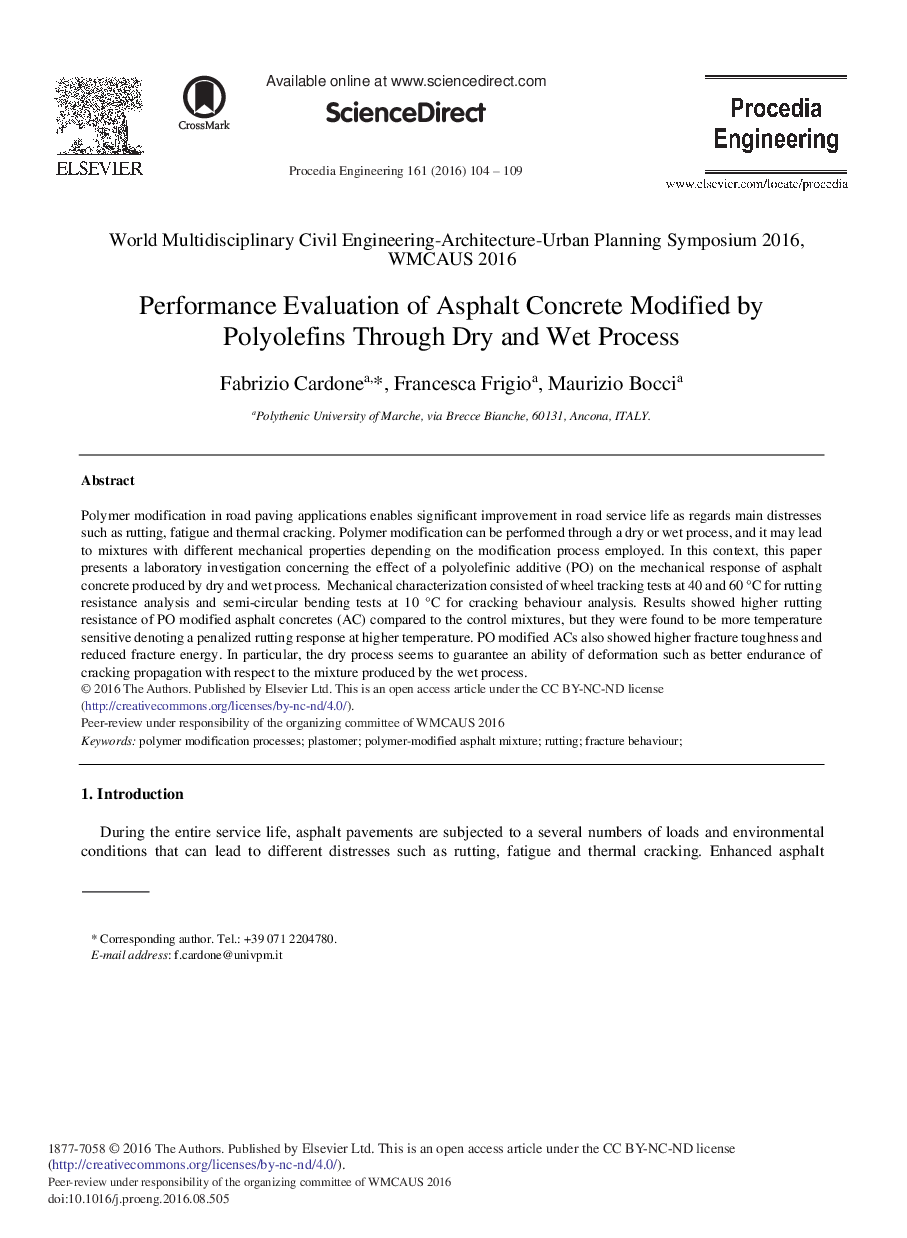| Article ID | Journal | Published Year | Pages | File Type |
|---|---|---|---|---|
| 5029718 | Procedia Engineering | 2016 | 6 Pages |
Abstract
Polymer modification in road paving applications enables significant improvement in road service life as regards main distresses such as rutting, fatigue and thermal cracking. Polymer modification can be performed through a dry or wet process, and it may lead to mixtures with different mechanical properties depending on the modification process employed. In this context, this paper presents a laboratory investigation concerning the effect of a polyolefinic additive (PO) on the mechanical response of asphalt concrete produced by dry and wet process. Mechanical characterization consisted of wheel tracking tests at 40 and 60°C for rutting resistance analysis and semi-circular bending tests at 10°C for cracking behaviour analysis. Results showed higher rutting resistance of PO modified asphalt concretes (AC) compared to the control mixtures, but they were found to be more temperature sensitive denoting a penalized rutting response at higher temperature. PO modified ACs also showed higher fracture toughness and reduced fracture energy. In particular, the dry process seems to guarantee an ability of deformation such as better endurance of cracking propagation with respect to the mixture produced by the wet process.
Keywords
Related Topics
Physical Sciences and Engineering
Engineering
Engineering (General)
Authors
Fabrizio Cardone, Francesca Frigio, Maurizio Bocci,
